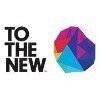Java Trainee
10+ Java Trainee Interview Questions and Answers

Asked in Biocipher

Q. What specific Java-related questions did you encounter during the interview?
I was asked about my experience with Java frameworks, debugging skills, and knowledge of object-oriented programming concepts.
Experience with Java frameworks like Spring or Hibernate
Debugging skills using tools like Eclipse or IntelliJ
Understanding of object-oriented programming concepts like inheritance and polymorphism

Asked in Biocipher

Q. What is the join method in multithreading?
The join method in multithreading is used to wait for a thread to complete its execution before moving on to the next task.
The join() method is a method in Java that allows one thread to wait until another thread completes its execution.
It is used to ensure that the main thread waits for the completion of the thread on which join() method is called.
For example, if we have two threads t1 and t2, and we want t1 to wait for t2 to finish before proceeding, we can call t2.join() i...read more
Java Trainee Interview Questions and Answers for Freshers
Asked in Stellar Informatics

Q. What is the difference between Collection and Collections in Java?
Collection is an interface that represents a group of objects while Collections is a utility class that provides methods to operate on collections.
Collection is an interface while Collections is a class
Collection is used to represent a group of objects while Collections provides utility methods to operate on collections
Example of Collection: List, Set, Queue
Example of Collections: sort(), reverse(), shuffle()

Asked in Orange Business

Q. Given an array of numbers, find the second largest number.
To find the second largest number in an array of integers.
Sort the array in descending order and return the second element.
Iterate through the array and keep track of the two largest numbers.
Use a priority queue to find the second largest element.

Asked in TCS

Q. What is java, oops concept, data types..
Java is a popular programming language known for its object-oriented programming (OOP) concepts and various data types.
Java is a high-level programming language used for developing applications and software.
Object-oriented programming (OOP) is a programming paradigm based on the concept of objects, which can contain data in the form of fields and code in the form of procedures.
Data types in Java include primitive data types (int, double, boolean, etc.) and reference data type...read more
Asked in Protechsoft

Q. Fundamentals of java in depth concept
Fundamentals of Java cover basic concepts like data types, variables, control structures, and object-oriented programming principles.
Data types in Java include int, double, boolean, etc.
Variables are used to store data and can be declared with specific data types.
Control structures like if-else, loops, and switch statements help in controlling the flow of a program.
Object-oriented programming principles like inheritance, encapsulation, and polymorphism are fundamental concept...read more
Asked in SimplyFI Softech

Q. What is a map in Java Collections?
Map is an interface in Java collections that stores key-value pairs.
Map interface is part of the Java Collections Framework.
It does not allow duplicate keys.
Common implementations of Map interface are HashMap, TreeMap, and LinkedHashMap.
Example: Map<String, Integer> studentScores = new HashMap<>();

Asked in Gateway Solutions

Q. How would you explain Java?
In Java, you can explain concepts using code examples, comments, and diagrams.
Use code examples to demonstrate Java syntax and concepts.
Include comments to explain the purpose and functionality of the code.
Use diagrams or visual aids to illustrate complex concepts.
Provide real-world examples to show practical applications of Java.
Share interview questions and help millions of jobseekers 🌟


Asked in Infosys

Q. What is Multithreading?
Multithreading is a programming concept that allows concurrent execution of two or more threads for improved performance.
Multithreading enables parallel execution, improving application responsiveness.
In Java, threads can be created by extending the Thread class or implementing the Runnable interface.
Example: Using Runnable interface to create a thread for a task.
Multithreading is useful in applications like web servers, where multiple requests are handled simultaneously.
Java...read more

Asked in Coforge

Q. What is the Collection Framework?
The Collection Framework in Java provides a set of classes and interfaces for storing and manipulating groups of objects.
Consists of interfaces like List, Set, and Map for different data structures.
ArrayList is a resizable array implementation of the List interface.
HashSet implements the Set interface and stores unique elements.
HashMap stores key-value pairs and allows fast retrieval based on keys.


Q. Explain compile-time polymorphism.
Compile time polymorphism is achieved through method overloading in Java, where multiple methods have the same name but different parameters.
Method overloading allows multiple methods with the same name but different parameters to be defined in a class.
The compiler determines which method to call based on the number and type of arguments passed during compile time.
Compile time polymorphism is also known as static polymorphism.
Example: public void display(int a) and public voi...read more

Asked in ATYETI

Q. What is a package?
A package is a way to organize related classes and interfaces in Java.
Packages help in organizing code and avoiding naming conflicts.
Packages can contain sub-packages, classes, interfaces, and other resources.
Packages are declared using the 'package' keyword at the beginning of a Java file.
Example: 'package com.example.myapp;' declares a package named 'com.example.myapp'.

Asked in TCS

Q. Given an integer, determine whether it is a prime number.
A prime number is a natural number greater than 1 that cannot be formed by multiplying two smaller natural numbers.
A prime number has exactly two distinct positive divisors: 1 and itself.
Examples of prime numbers include 2, 3, 5, 7, 11, and 13.
The number 1 is not prime because it has only one positive divisor.
The number 4 is not prime because it can be divided by 1, 2, and 4.

Asked in Infosys

Q. What is OOPs?
OOPs (Object-Oriented Programming) is a programming paradigm based on objects and classes, promoting code reusability and modularity.
Encapsulation: Bundling data and methods that operate on the data within one unit (e.g., a class).
Inheritance: Mechanism where a new class inherits properties and behavior from an existing class (e.g., a 'Dog' class inheriting from an 'Animal' class).
Polymorphism: Ability to present the same interface for different underlying forms (e.g., method...read more

Asked in Infosys

Q. What are the core concepts of Object-Oriented Programming (OOP)?
Object-Oriented Programming (OOP) concepts in Java include encapsulation, inheritance, polymorphism, and abstraction.
Encapsulation: Bundling data and methods. Example: A class 'Car' with attributes like 'speed' and methods like 'accelerate()'.
Inheritance: Mechanism to create a new class from an existing class. Example: 'Sedan' class inherits from 'Car' class.
Polymorphism: Ability to perform a single action in different ways. Example: Method overloading and overriding.
Abstract...read more

Asked in TCS

Q. What are the pillars of OOPs?
The four pillars of OOP are Encapsulation, Abstraction, Inheritance, and Polymorphism, essential for object-oriented programming.
Encapsulation: Bundling data and methods that operate on the data within one unit (class). Example: A class 'Car' with attributes like 'speed' and methods like 'accelerate()'.
Abstraction: Hiding complex implementation details and showing only the essential features. Example: An interface 'Vehicle' with methods like 'start()' and 'stop()'.
Inheritance...read more
Interview Questions of Similar Designations
Interview Experiences of Popular Companies






Calculate your in-hand salary
Confused about how your in-hand salary is calculated? Enter your annual salary (CTC) and get your in-hand salary


Reviews
Interviews
Salaries
Users











